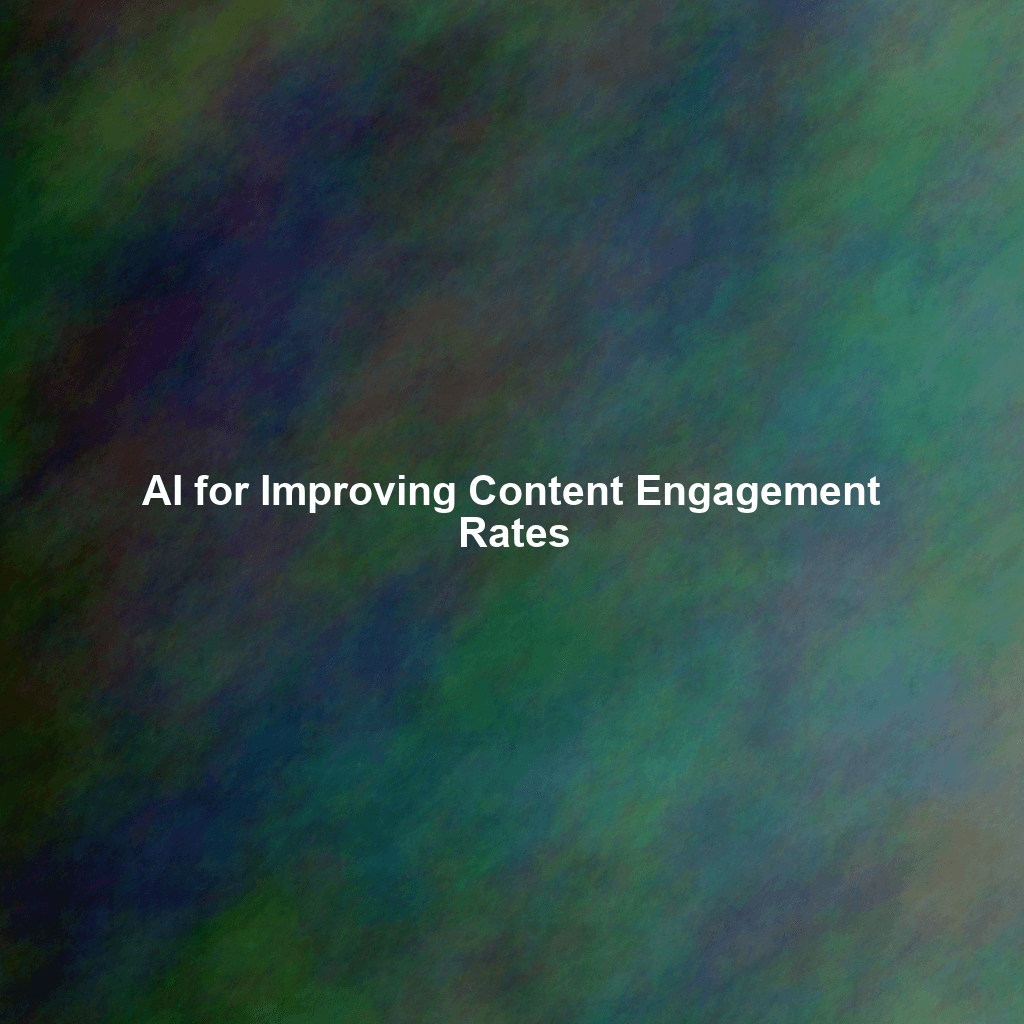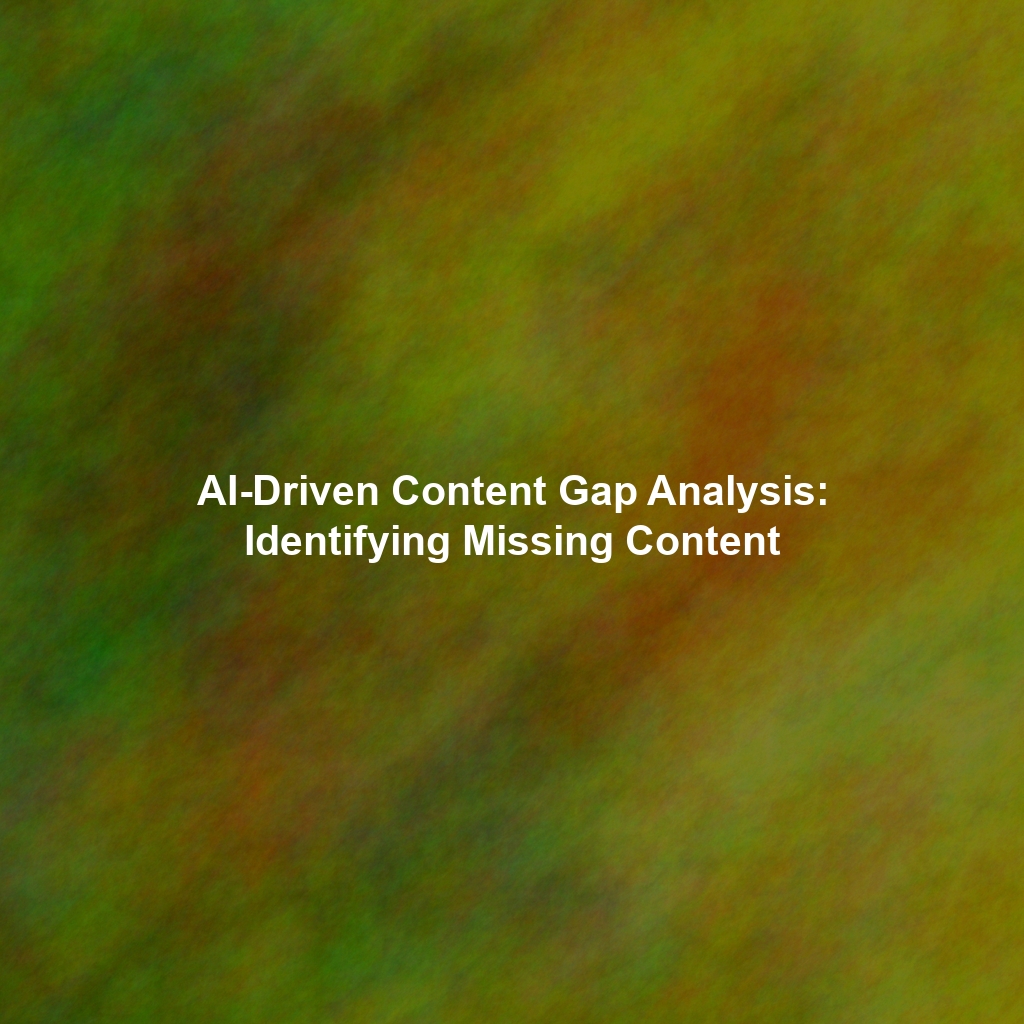In today’s saturated digital landscape, creating content is only half the battle. Getting that content seen, and more importantly, getting it to resonate with your audience, is the real challenge. This is where Artificial Intelligence (AI) steps in, offering a powerful arsenal of tools to boost content engagement rates far beyond what traditional methods can achieve. We’re moving past simply pushing content out; AI allows us to tailor, optimize, and deliver content in a way that truly connects with our audience, fostering meaningful interactions and driving tangible results.
Understanding the Content Engagement Landscape
Before diving into the specifics of AI, it’s crucial to understand what drives content engagement. Engagement encompasses a range of metrics, including:
- Page Views & Time on Page: How many people are viewing your content and how long are they staying?
- Social Shares: Are people sharing your content on social media platforms?
- Comments & Interactions: Are readers leaving comments, asking questions, and interacting with your content?
- Click-Through Rates (CTR): Are users clicking on links within your content or from search results?
- Conversion Rates: Is your content leading to desired actions, such as sign-ups, purchases, or downloads?
Low engagement can stem from various factors, including irrelevant content, poor targeting, unoptimized formatting, and lack of compelling calls to action. AI helps address these issues by providing data-driven insights and automating key processes.
AI-Powered Audience Analysis for Targeted Content
One of the most significant benefits of AI in content marketing is its ability to analyze vast amounts of data to understand your audience better. AI algorithms can sift through demographics, psychographics, online behavior, and past interactions to create detailed audience profiles. This granular understanding allows you to:
Identify Ideal Customer Personas
AI can help refine your existing customer personas or even uncover entirely new segments you hadn’t considered. By analyzing customer data, AI can identify common traits, interests, pain points, and preferences, allowing you to create more accurate and targeted personas.
Predict Content Preferences
Based on historical data, AI can predict what type of content your audience is most likely to engage with. This includes factors like topic, format (e.g., blog post, video, infographic), tone, and style. This predictive capability allows you to proactively create content that resonates with your audience, increasing the likelihood of engagement.
Optimize Content Distribution Channels
AI can analyze which channels your audience is most active on and when they are most likely to engage with content. This allows you to optimize your content distribution strategy, ensuring that your content reaches the right people at the right time. For example, AI might reveal that your target audience is more active on LinkedIn during weekdays but prefers Instagram on weekends.
AI for Content Creation and Optimization
AI isn’t just about understanding your audience; it can also play a significant role in the actual creation and optimization of content itself.
Generating Content Ideas
Struggling with writer’s block? AI-powered tools can analyze trending topics, keywords, and audience interests to generate a wealth of content ideas. These tools can identify gaps in the market, suggest relevant keywords, and even provide outlines for potential articles or videos.
Crafting Compelling Headlines and Meta Descriptions
Headlines and meta descriptions are crucial for attracting attention and driving clicks. AI can analyze successful headlines and meta descriptions to identify patterns and generate variations that are more likely to resonate with your audience. A/B testing these AI-generated variations can further optimize your click-through rates.
Improving Content Readability and Clarity
AI-powered writing assistants can analyze your content for readability, grammar, and style. These tools can suggest improvements to make your content more concise, clear, and engaging. By ensuring that your content is easy to understand, you can increase the likelihood that readers will stay engaged and consume the entire piece.
Optimizing Content for SEO
Search Engine Optimization (SEO) is essential for driving organic traffic to your content. AI can analyze your content for relevant keywords, optimize metadata, and improve internal linking to boost your search engine rankings. This increased visibility can lead to more traffic and higher engagement rates.
Personalizing Content Experiences
AI enables personalization at scale. Based on user data, AI can dynamically adjust content to match individual preferences. This could involve displaying different headlines, images, or even entire sections of content based on a user’s past behavior, demographics, or interests. Personalized content is far more likely to resonate with readers, leading to higher engagement rates and conversions.
AI-Powered Content Distribution and Promotion
Creating great content is important, but it won’t make a difference if nobody sees it. AI can help optimize your content distribution and promotion efforts to reach a wider audience and drive more engagement.
Automated Social Media Management
AI-powered social media management tools can automate tasks like scheduling posts, identifying optimal posting times, and engaging with followers. These tools can analyze social media data to determine which types of content are performing best and adjust your strategy accordingly.
Personalized Email Marketing
AI can personalize email subject lines, content, and send times to improve open rates and click-through rates. By analyzing user data, AI can identify the most relevant content for each individual subscriber and deliver personalized messages that resonate with their interests.
AI-Driven Content Recommendations
AI can analyze user behavior to recommend relevant content on your website or app. This can encourage users to explore more of your content and stay engaged for longer periods of time. For example, AI can recommend related articles at the end of a blog post or suggest relevant products based on a user’s browsing history.
Predictive Analytics for Content Performance
AI can analyze historical data to predict the future performance of your content. This allows you to identify potential issues early on and make adjustments to improve your results. For example, AI might predict that a particular piece of content is likely to underperform based on its topic, format, or target audience. This gives you the opportunity to revise the content or adjust your distribution strategy before it’s too late.
Examples of AI Tools for Content Engagement
The market is brimming with AI-powered tools designed to help you elevate your content strategy. Here are a few examples:
- Jasper (formerly Jarvis): A popular AI writing assistant that can help generate content ideas, write blog posts, and create social media content.
- MarketMuse: Helps you research keywords, analyze competitor content, and optimize your content for SEO.
- Phrasee: Uses AI to generate and optimize email subject lines and marketing copy.
- Grammarly: While not exclusively AI, it uses AI to analyze your writing for grammar, style, and readability.
- Surfer SEO: A tool designed to help analyze search results and provides data-driven suggestions to optimize your on-page SEO.
- HubSpot: Offers AI-powered features for content marketing, including content recommendations, personalization, and lead scoring.
Ethical Considerations and the Future of AI in Content Engagement
While AI offers incredible potential for improving content engagement, it’s important to consider the ethical implications. Transparency is key – be upfront with your audience about how AI is being used to personalize their experiences. Avoid using AI to create deceptive or misleading content. Focus on using AI to enhance, not replace, human creativity and critical thinking.
The future of AI in content marketing is bright. We can expect to see even more sophisticated AI tools that can personalize content experiences in real-time, generate highly engaging content formats, and predict audience behavior with greater accuracy. As AI technology continues to evolve, it will become an increasingly essential tool for content marketers looking to stand out from the crowd and connect with their audience on a deeper level.
Conclusion
AI is no longer a futuristic concept; it’s a present-day reality that’s transforming the landscape of content marketing. By leveraging AI-powered tools and techniques, you can gain a deeper understanding of your audience, create more relevant and engaging content, and optimize your distribution efforts to maximize impact. Embrace AI as a strategic partner, and you’ll be well-equipped to navigate the ever-evolving digital world and achieve remarkable success in your content marketing endeavors. Don’t just create content – create connections.
 Skip to content
Skip to content

